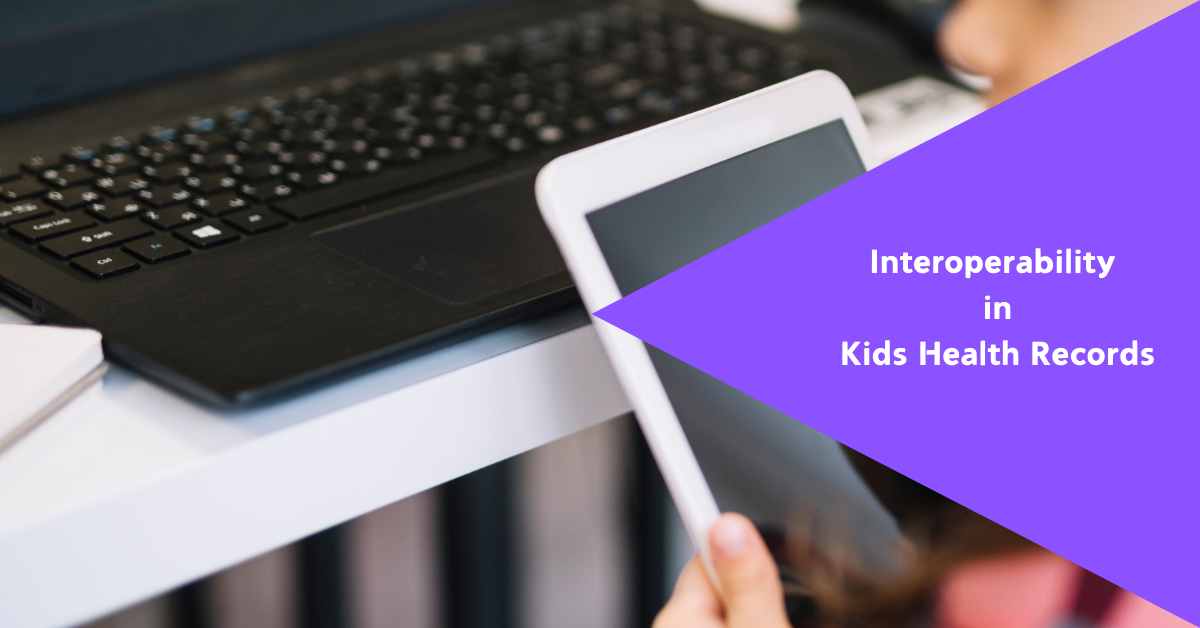In today’s digital era, technology is transforming healthcare, and one of the most significant advancements is the digitization of health records. Interoperability in kids digital health records is key to ensuring seamless, secure, and accessible data across healthcare providers, empowering parents, and enhancing care coordination.
Enter digital health records, a solution that centralizes information for easy access. But for these systems to truly serve their purpose, they must be interoperable. Interoperability ensures that kids’ digital health records are seamless, secure, and accessible across healthcare providers. Here’s why it matters.
What Is Interoperability in Digital Health Records?
Interoperability refers to the ability of different healthcare systems to communicate, exchange, and interpret data efficiently. For kids’ digital health records, this means creating a unified platform where pediatricians, specialists, and parents can access and update information without barriers.
Interoperability ensures that health records are not siloed within one organization but are shareable across multiple platforms while maintaining security and privacy.
The Benefits of Interoperability in Kids Health Records

1. Streamlined Care Coordination
Children often require care from multiple providers, including pediatricians, specialists, and therapists. Interoperable digital health records enable seamless data sharing, ensuring that all healthcare professionals involved have a complete picture of the child’s medical history.
This reduces errors, avoids redundant tests, and facilitates better treatment plans.
2. Better Emergency Response
In emergencies, quick access to a child’s health data can save lives. Interoperable records allow healthcare providers to retrieve essential information, such as allergies, past treatments, or chronic conditions, without delay. This ensures that the right care is provided promptly.
3. Empowering Parents
Parents play a crucial role in managing their child’s health. With interoperable systems, they can access their child’s health records anytime and anywhere. Whether it’s tracking vaccination schedules, downloading medical reports, or sharing data with a new doctor, parents are empowered to make informed decisions.
4. Improved Public Health Monitoring
Interoperability also aids in monitoring public health trends. Aggregated and anonymized data from interoperable systems can help identify patterns, such as outbreaks of diseases, enabling quicker responses from public health authorities.
Challenges in Achieving Interoperability
Despite its benefits, achieving interoperability in kids’ digital health records comes with challenges:
- Data Privacy and Security: Protecting sensitive health information is paramount. Interoperable systems must comply with regulations like HIPAA to ensure data security.
- Standardization Issues: Different healthcare providers may use incompatible systems. Standardizing data formats is critical for smooth integration.
- Cost and Implementation: Transitioning to interoperable systems can be expensive and time-consuming for healthcare organizations.
The Path Forward
To ensure interoperability in kids’ digital health records, stakeholders—including healthcare providers, technology developers, and policymakers—must collaborate. Prioritizing standardized protocols, investing in secure platforms, and educating users about the benefits are key steps in this journey.
Conclusion
Interoperability in kids digital health records is more than a technological advancement; it’s a necessity for modern pediatric healthcare. By ensuring that health data flows seamlessly and securely across systems, interoperability enhances care coordination, empowers parents, and improves health outcomes for children.
As the healthcare industry continues to evolve, embracing interoperability will pave the way for a healthier future for our kids.
To ensure your child’s health information is managed efficiently and securely, embrace the power of digital health records. At KidsCur, we are committed to providing seamless, interoperable solutions that empower parents and healthcare providers alike. Join us in transforming the way we care for our children’s health!

